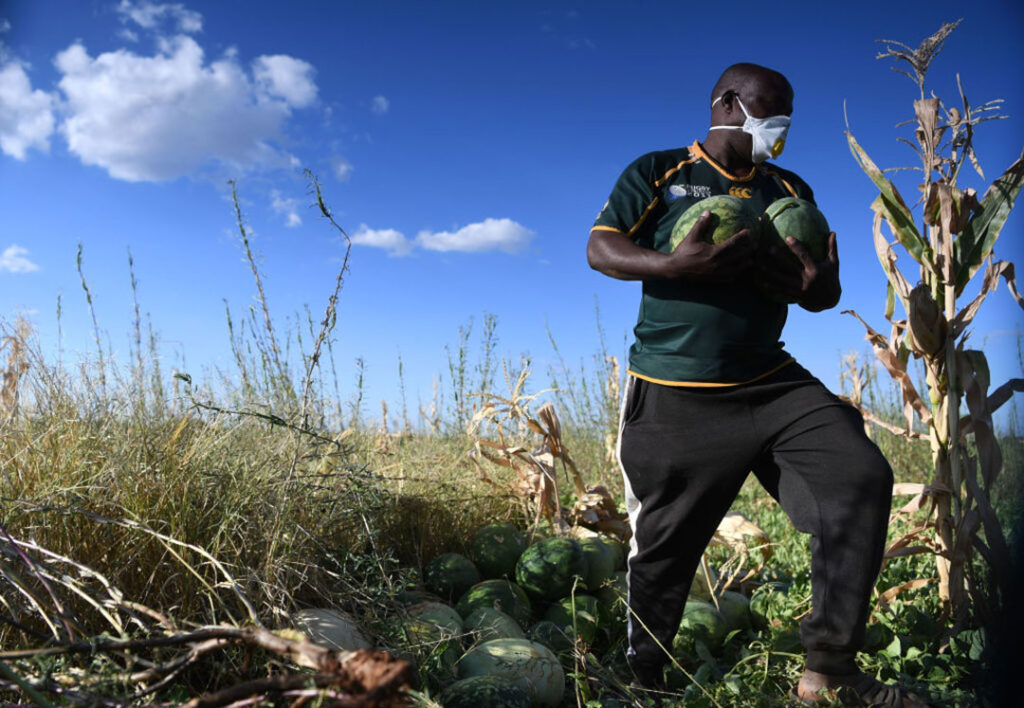ADF STAFF
Food security was a major problem in Africa before COVID-19 struck, with the United Nations estimating that nearly 282 million people on the continent were malnourished in 2020.
But the pandemic has inflated costs for farmers and disrupted each phase of the value chain — production, processing, packaging and distribution.
Today, COVID-19 represents an additional threat to food security at a time when many countries are already reporting acute hunger, famine and drought-like conditions.
“The magnitude of suffering is alarming,” U.N. Food and Agriculture Organization Director-General Qu Dongyu said in March. “It is incumbent upon all of us to act now and to act fast to save lives, safeguard livelihoods and prevent the worst situation.
“In many regions, the planting season has just started or is about to start. We must race against the clock and not let this opportunity to protect, stabilize and even possibly increase local food production slip away.”
Africa’s agriculture industry provides a livelihood to 60% of the continent’s workers and comprises 23% of its gross domestic product.
“For smallholder farmers across the region, seeds, fertilizer, animal feed and crop protection instruments upon which they rely to maximize yields have become scarce, or substantially more expensive, hindering production of widely consumed crops such as rice and maize, as well as Ethiopian coffee, Kenyan horticulture and Ghanaian pineapples,” journalist Charlie Mitchell wrote for African Business magazine.
Pandemic lockdowns were just one of many hinderances in several agricultural regions.
East Africa dealt with floods and the worst locust infestation in 70 years. In Southern Africa, Zimbabwe, Madagascar and Mozambique experienced drought and drought-like conditions. Violent conflicts in the Horn of Africa, the Sahel, Nigeria, Mozambique and South Sudan have compounded food insecurity.
“Many agricultural SMEs [small- and medium-size enterprises] have been forced to downsize or fold as food has rotted on farms or in trucks, causing job losses, food insecurity and poverty,” Mitchell wrote. “Meanwhile, lockdowns have sucked the life out of the informal sector, the primary source of employment in sub-Saharan Africa.”
Profits for farmers have slumped, while costs continue to rise.
Nonprofit Precision Agriculture for Development conducted a survey of nearly 1,500 Kenyan farmers and agri-dealers between late April and early June, finding 76% of agri-dealers reported lower sales compared to the prior month.
Farmers also said the price of chemicals, equipment, feed, seed and energy rose, and 55% reported borrowing money in the prior month to cover living expenses.
Experts are calling for urgent funding to help save and distribute this year’s harvests in order to break a vicious cycle that sees farmers saddled with debt and unable to make customary investments for the next harvest.
During a panel discussion in early July, Julie Greene, vice president of international food and agribusiness at the food company Olam International, said farmers need better access to loans, labor and inputs like fertilizer, feed and water to increase production.
“The pandemic has trapped them in a downward spiral,” Greene said. “Long-standing issues like undiversified farms or income sources multiply the challenge.”
International Finance Corp. agribusiness leader Samuel Dzotefe emphasized the pressing need to address hurdles that prevent farmers from getting their food to market.
“Infrastructure is very important for the agricultural sector,” he said on the panel. “Where you produce food is different to where food is sold. We need to boost infrastructure, even the roads we use in the sector.”

